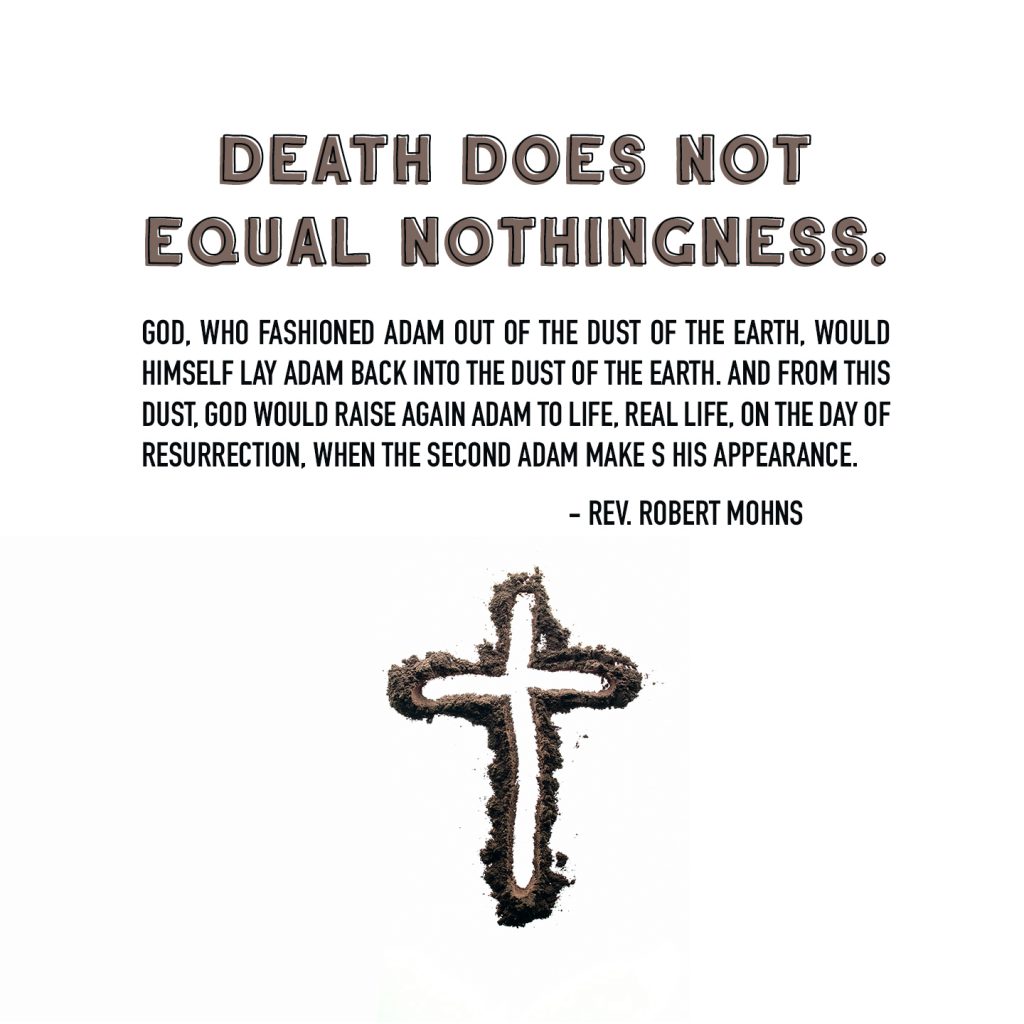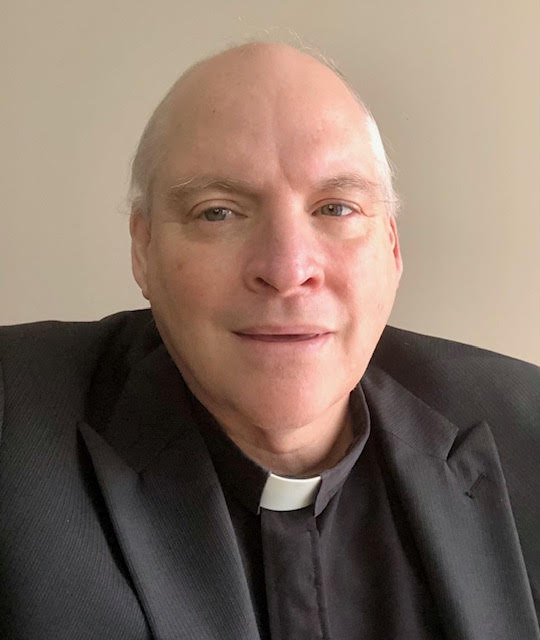Dust You Are

by Robert Mohns
Years ago, I read a remarkable manuscript in which the author imagined stories tied to a particular piece of land. I read that story, set not far from the North Saskatchewan River in the Edmonton area, on a late spring day, sitting on a sunny bench in that very geographic setting.
The story began where such a tale might rightly begin: in the dust. A prairie wildfire had incinerated all the grass and brush, leaving only dust and the acrid smell of burnt vegetation. Each vignette added another layer to the stories of those who lived and died in that place. The tale concluded on a personal note, with the author standing where his own father was laid to rest in the dust of the earth.
I finished the final words of the story as the last beams of sunlight hit the park bench. The lengthening shadows gathered around, turning earth tones to pale grey. I made my way home with a greater appreciation for dust.
There is another, far more compelling and important dust story. You can read it in the Bible, where the author is none other than the true and living God. In Holy Writ a hundred times and more, dust’s story is retold. There are the primal days when God gathered together dust to separate the waters, setting vegetation, plants, and animals of every kind upon its surface, where they would thrive. He would go on to separate dust from dust, and form Adam. This was no generic Ken and Barbie production line; He set out to form His perfect Adam in detail after the likeness of His beloved Son, and breathed His Spirit into him. And so, dust and the prime of God’s creation would be connected.
“Dust you are and to dust you shall return,” the Creator speaks His Word again to fleeing, fallen, dead Adam (Genesis 3:19). Martin Luther writes: “In one brief statement God thus at the same time establishes and devours the whole human race. Some are turned to dust and perish; others are born into similar sorrows. This process will continue until that longed-for day of our redemption arrives, when we shall really live.”
We feel the reality of sorrow acutely in our day. The present pandemic reminds us we still live in the world of enmity into which God sent fallen Adam and Eve. It’s a world at war with God and with itself. Though Adam died on the day of his sinning, he would also live on in this world of enmity. Adam and Eve would live see one of their sons murdered at the hands of another son.
We feel the reality of sorrow acutely in our day. The present pandemic reminds us we still live in the world of enmity into which God sent fallen Adam and Eve. It’s a world at war with God and with itself. Though Adam died on the day of his sinning, he would also live on in this world of enmity. Adam and Eve would live see one of their sons murdered at the hands of another son.
“Dust you are and to dust shall you shall return.” Death still holds the human race captive. Abortion, MAID, suicide, riots, wars, and the like are visible evidence of the world of enmity in which we still live. Whatever our world’s accomplishments or progress, this epitaph remains: “Dust you are and to dust you shall return.” This is us. It is our story written from the Author of Life’s perspective, as He stands before the mounds of dirt where his beloved sons and daughters are laid to rest.
Psalm 90 records Moses’ Prayer, in which he addresses God, saying, “You return man to dust and say, ‘Return, O children of man!’” (Psalm 90:3). Regarding this prayer, Luther writes: “Although this present life is fraught with sorrows, therefore, there is exceedingly abundant consolation in the thought that death comes first, and life follows.”
Jesus, the Word of God, lived under Adam’s curse and died Adam’s death.
Pay attention to Moses’ prayer and the consolation it affords: death does not equal nothingness. God, who fashioned Adam out of the dust of the earth, would Himself lay Adam back into the dust of the earth. And from this dust, God would raise again Adam to life, real life, on the day of resurrection, when the second Adam makes His appearance.
Even though God cast Adam out of Paradise, He would not annihilate him, nor would He abandon him. Instead, He accompanied him with His Word. And some day later, the Word itself would take on Adam’s dust. Jesus, the Word of God, lived under Adam’s curse and died Adam’s death. His cross was planted firmly in the dust of the earth. His blood and water flowed mingled down into the dust of the earth. Jesus, the second Adam, was buried in Adam’s tomb.
But on the third day, this second Adam was raised to life, His body uncorrupted, never to die again. And with His resurrection, He pulls the descendants of Adam through dust-born death to life. This too is God’s Word—a word of promise.

Cast out of Paradise, the dust-man, Adam, and all his children live under a curse because of sin. But we also live in hope of God’s promised salvation. For at the same time, we live on the dust of this world, mixed with pleasure and pain, joy and sadness, hope and despair, death and life. This is our situation, and it will be so until that day of redemption makes it appearing. What a day that will be!
“Dust you are and to dust you shall return.” These words, along with ashes, are often applied to the foreheads of the faithful in the Liturgy for Ash Wednesday. With it, the people of God begin their Lenten journey—a journey that pulls us through death to life through the death and life of the second Adam, Jesus Christ. This is our story, written by the author of our life. Dear children of Adam, daughters and sons of God, by virtue of Holy Baptism, a blessed Lenten journey to each and to all of you.
———————
Rev. Robert Mohns is Regional Pastor for Lutheran Church–Canada’s West Region.





